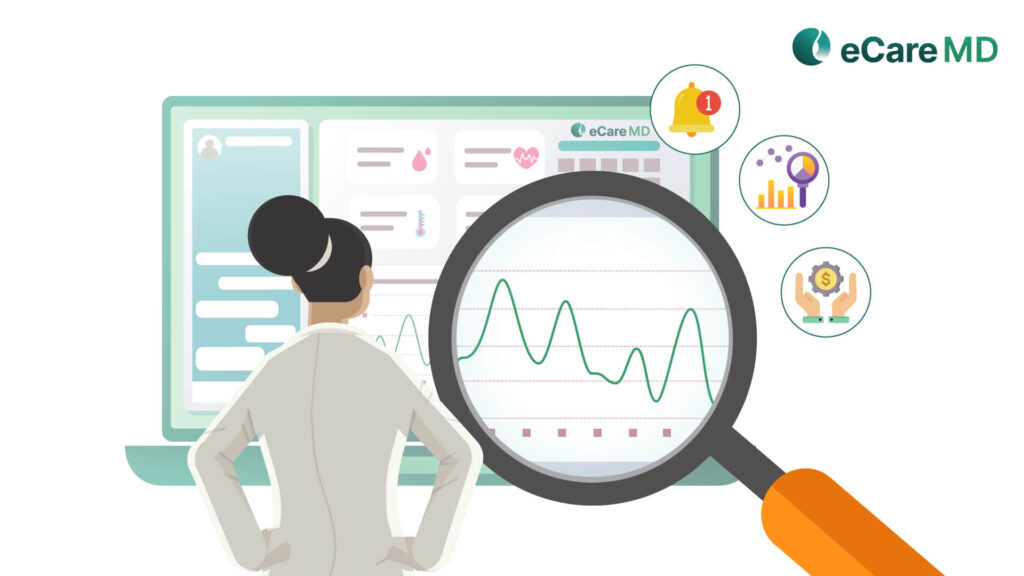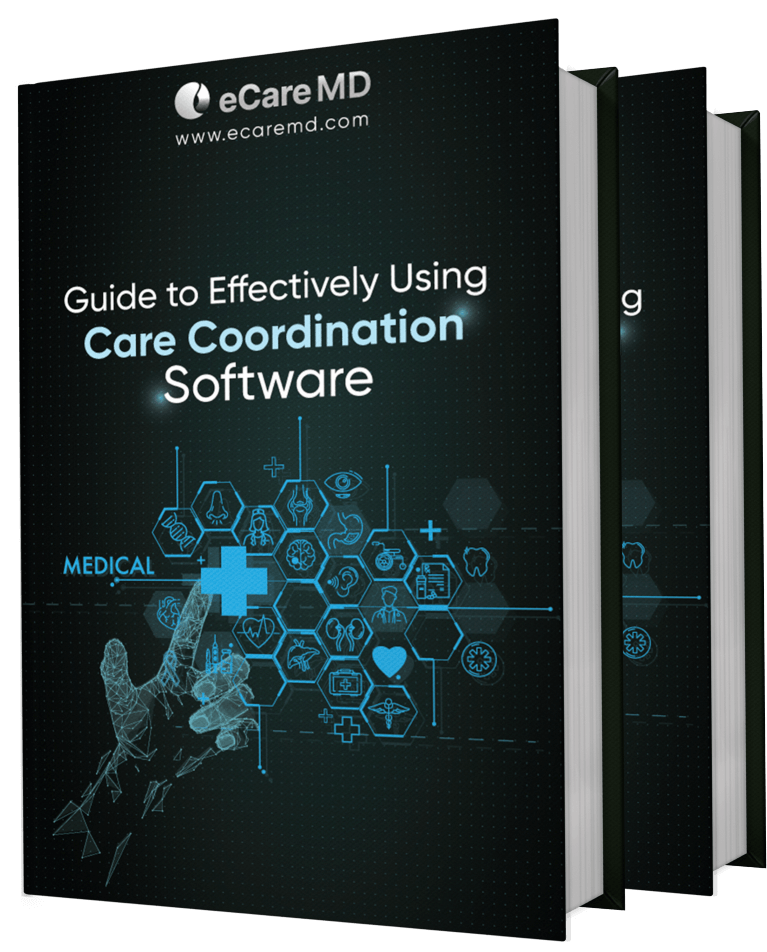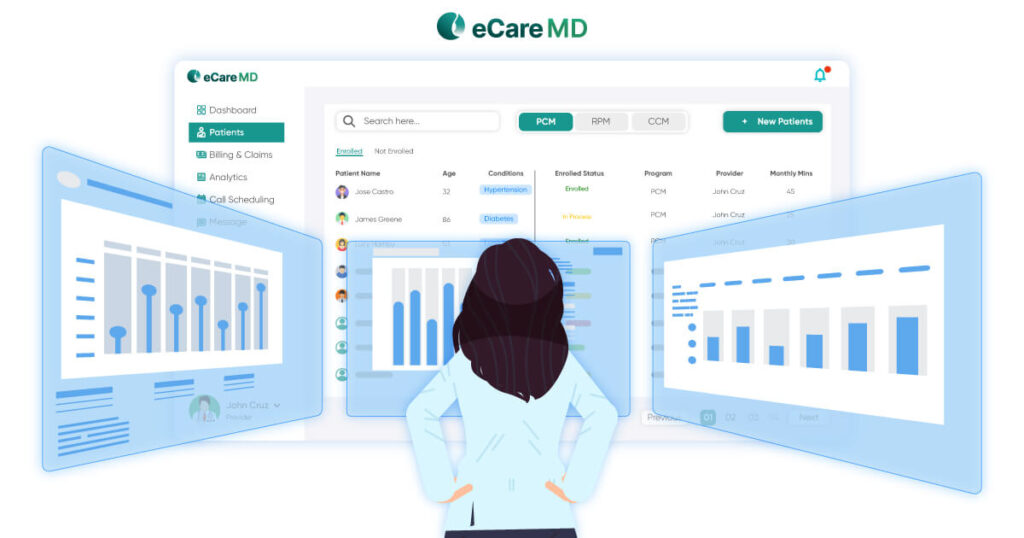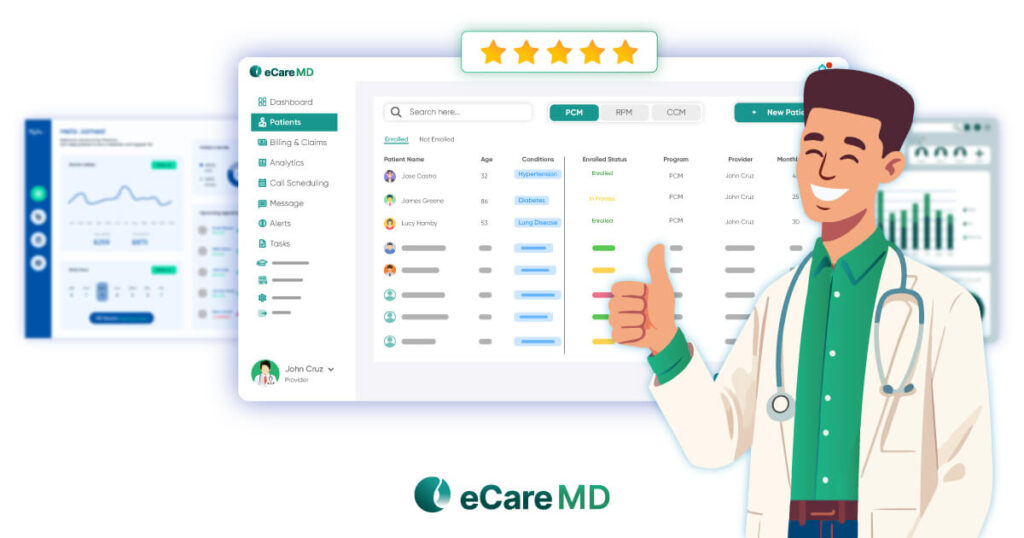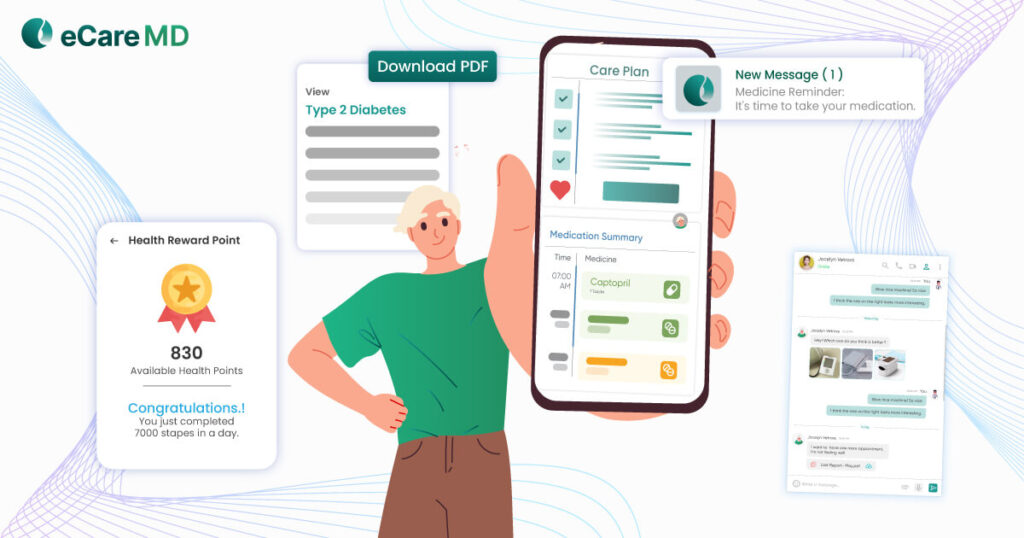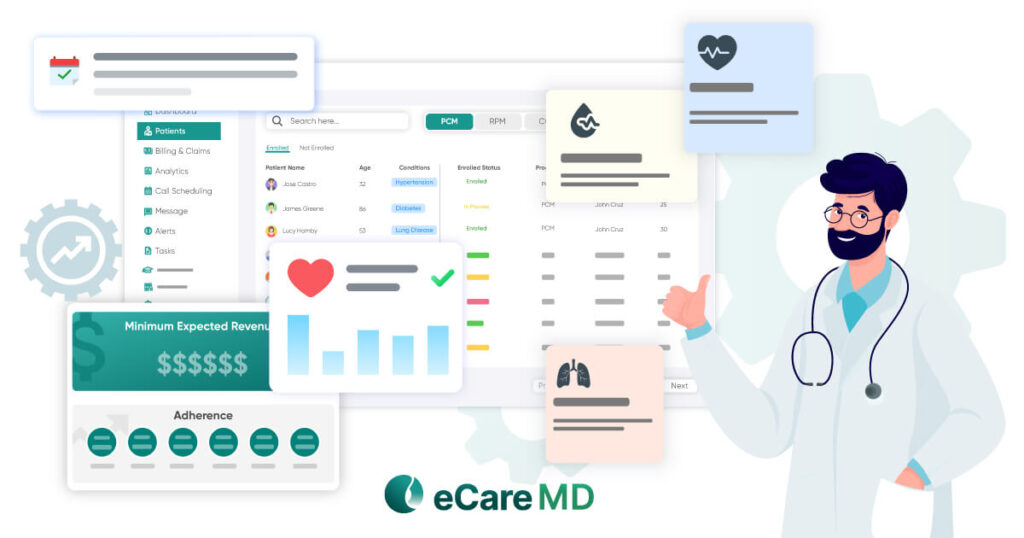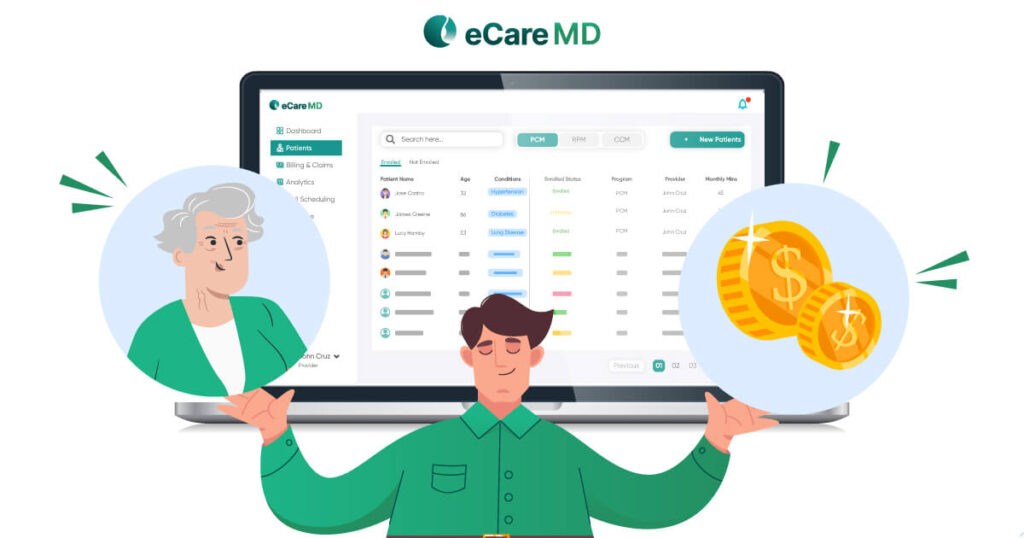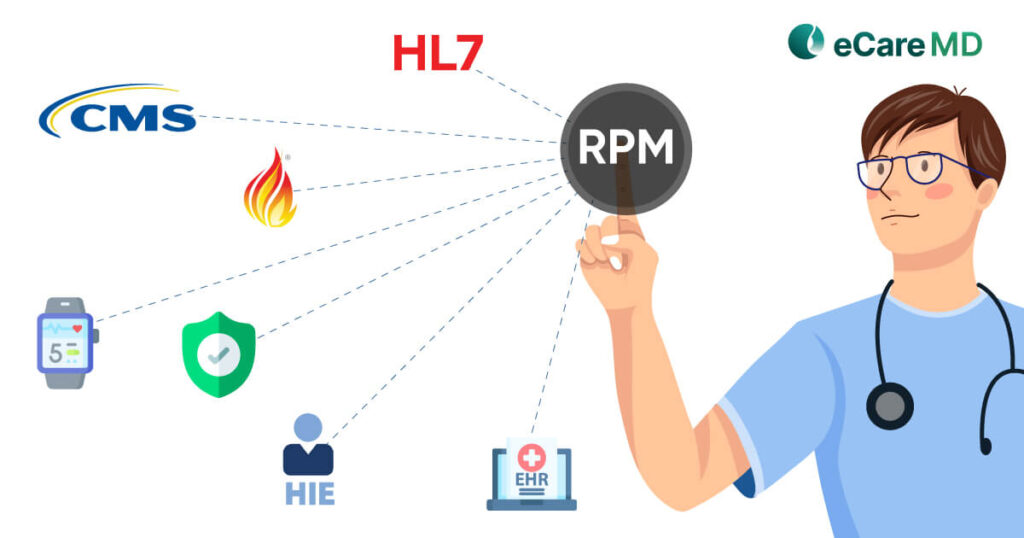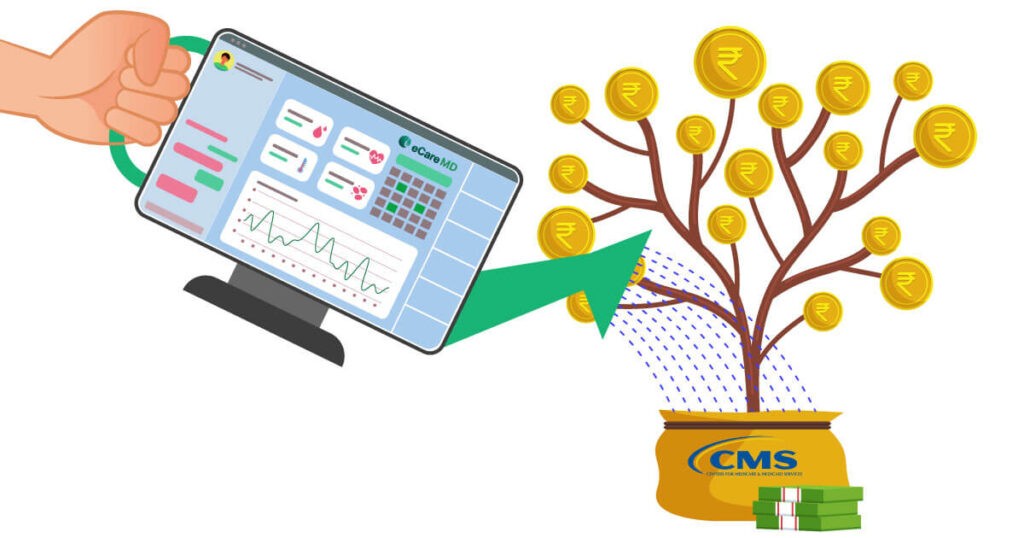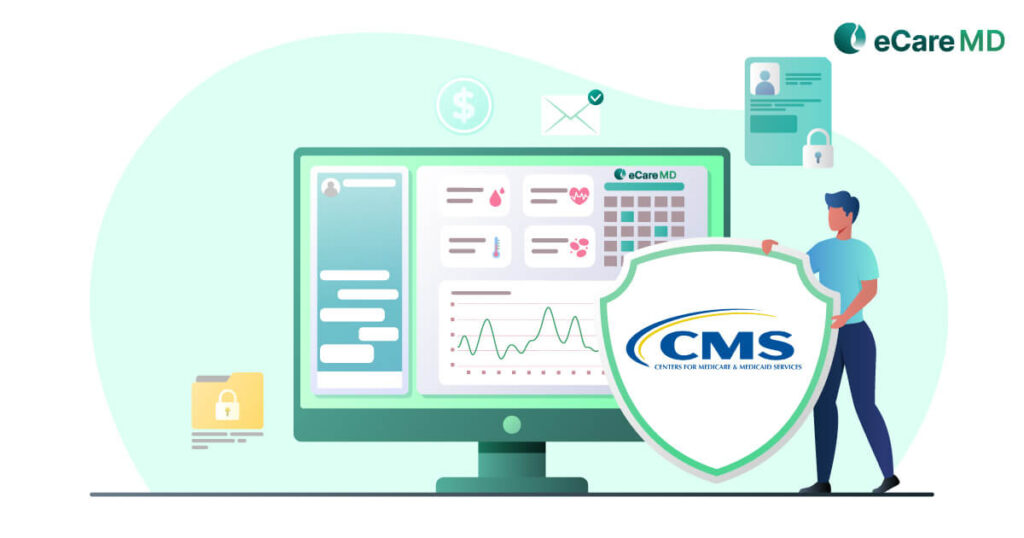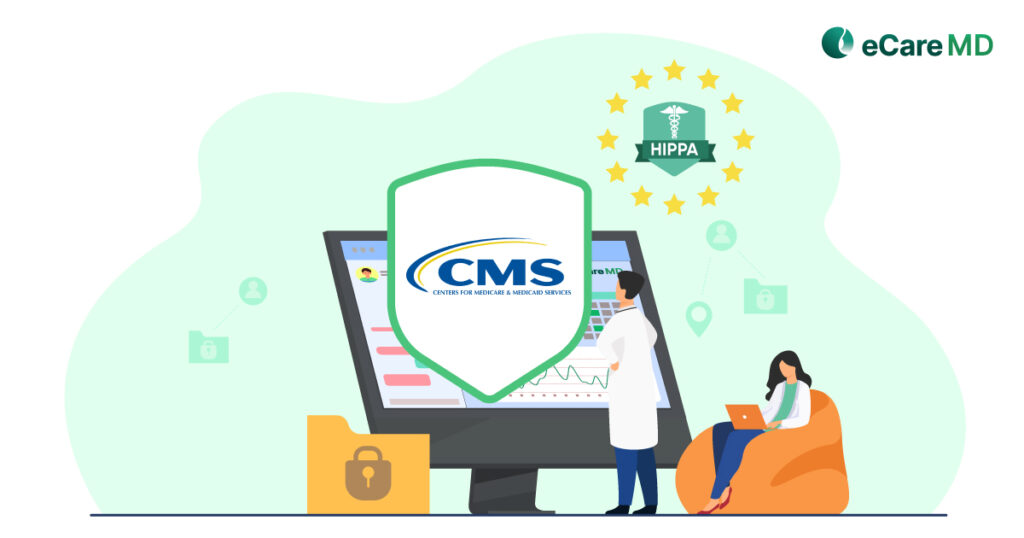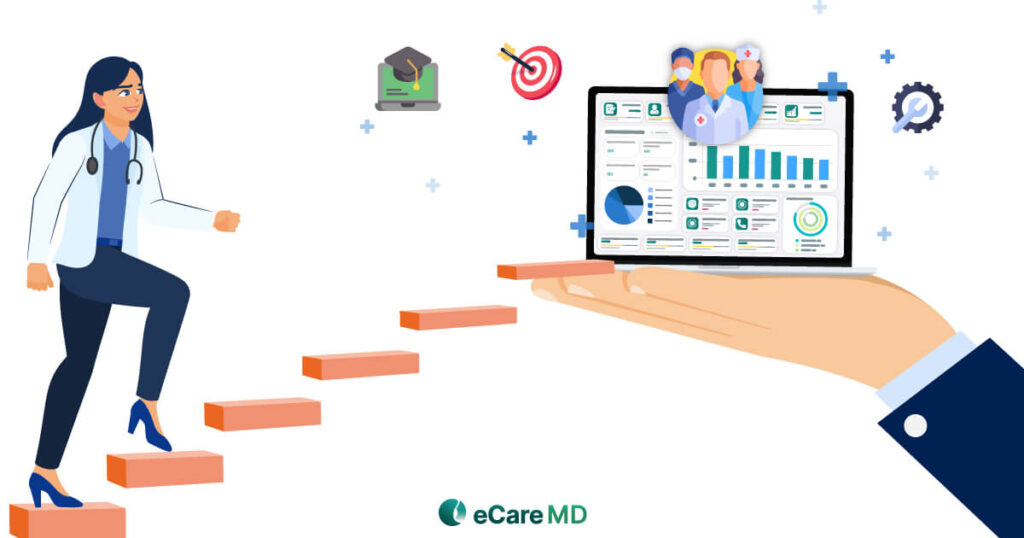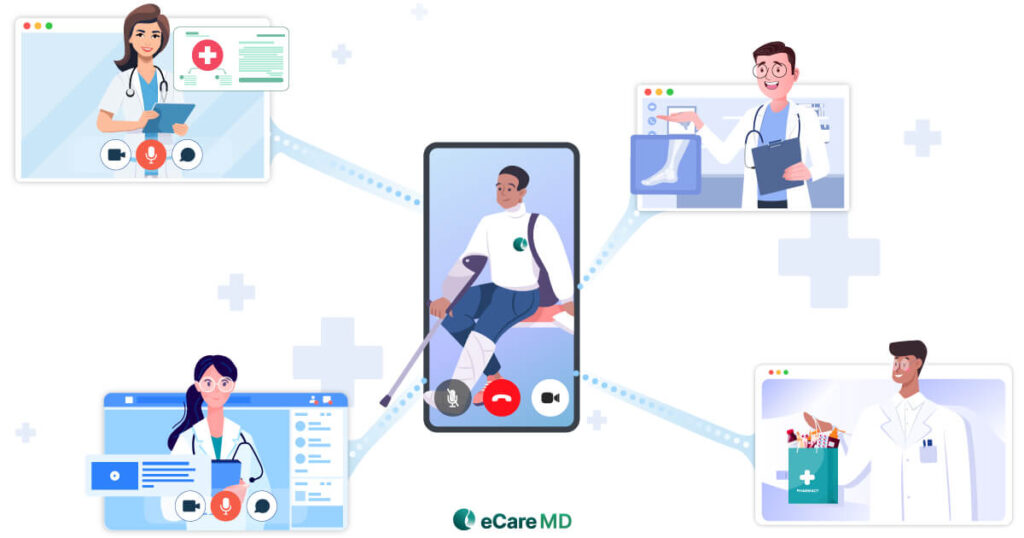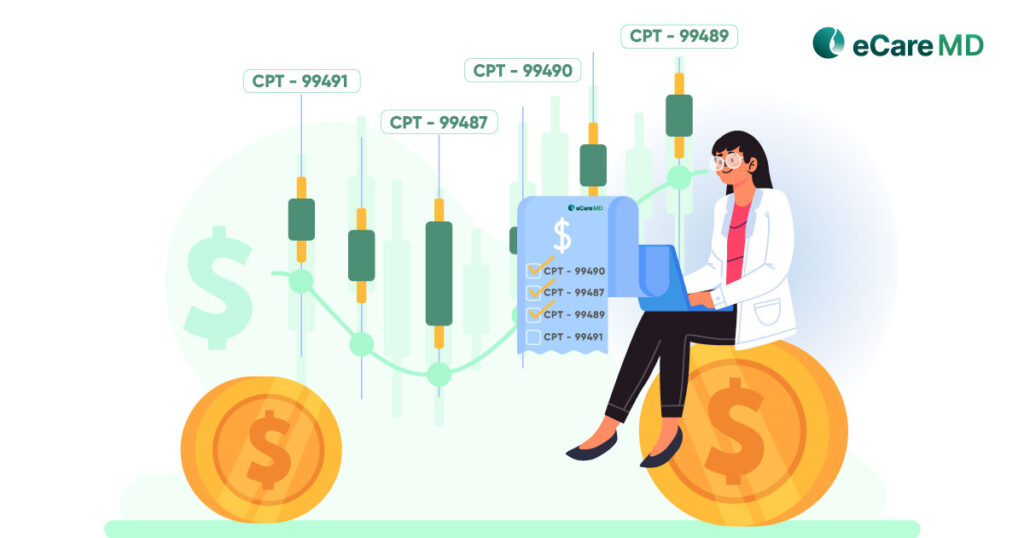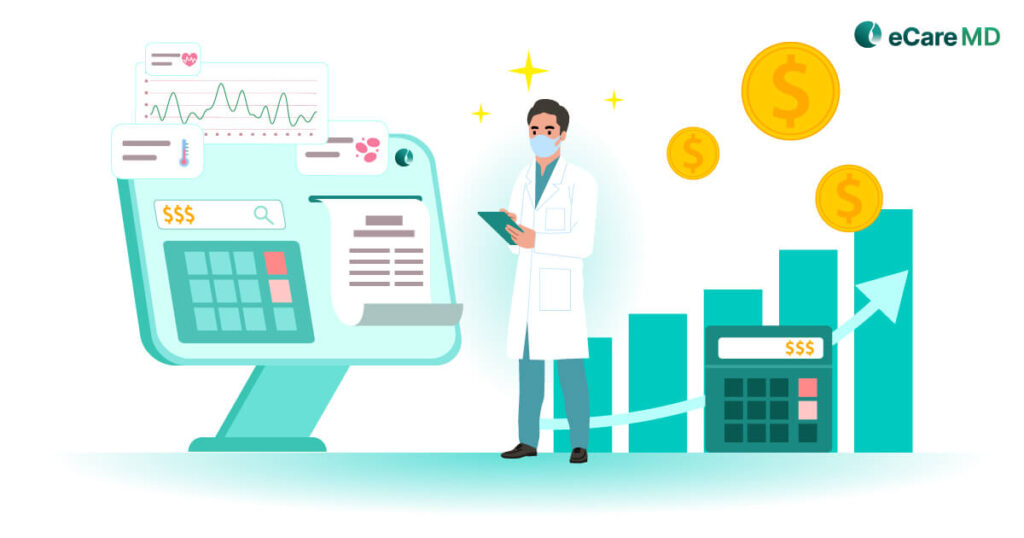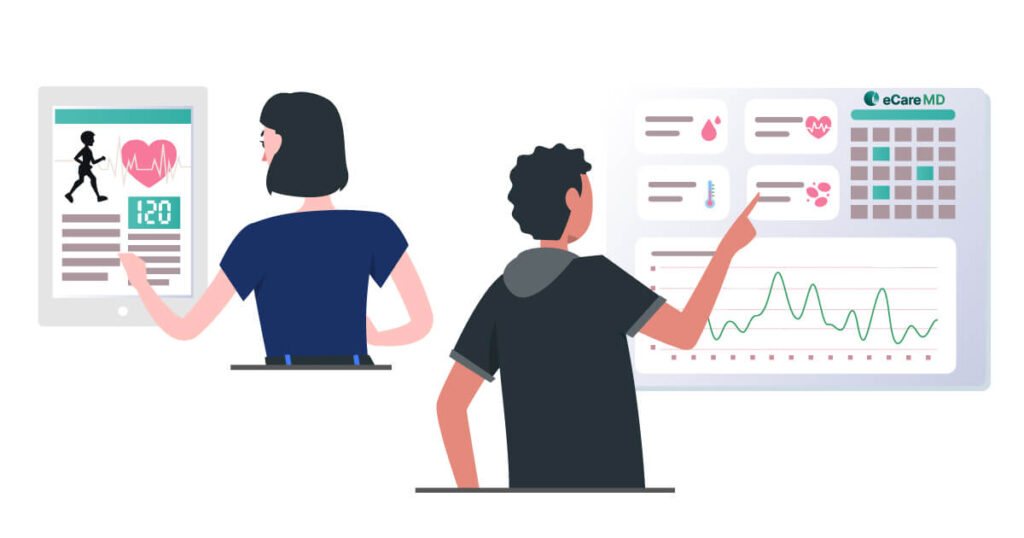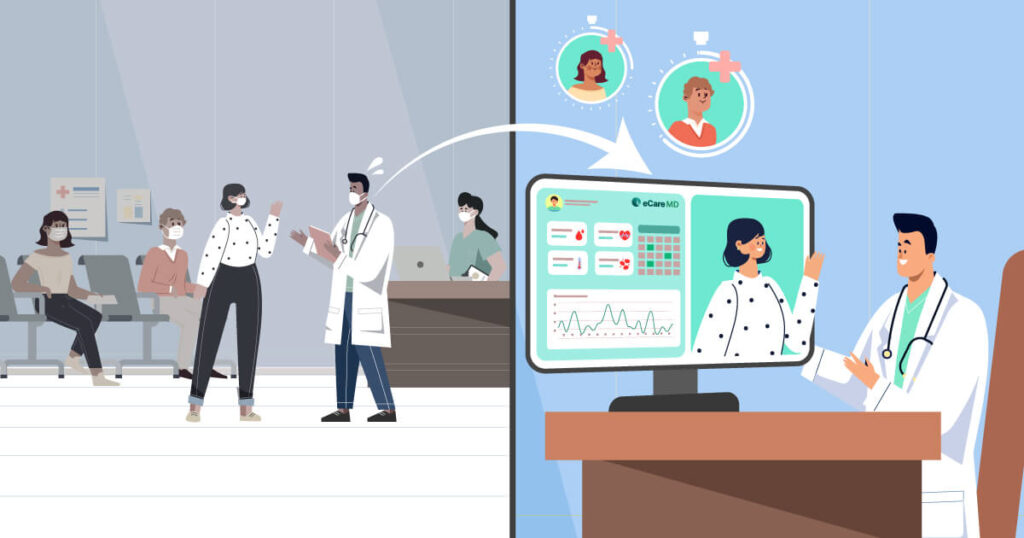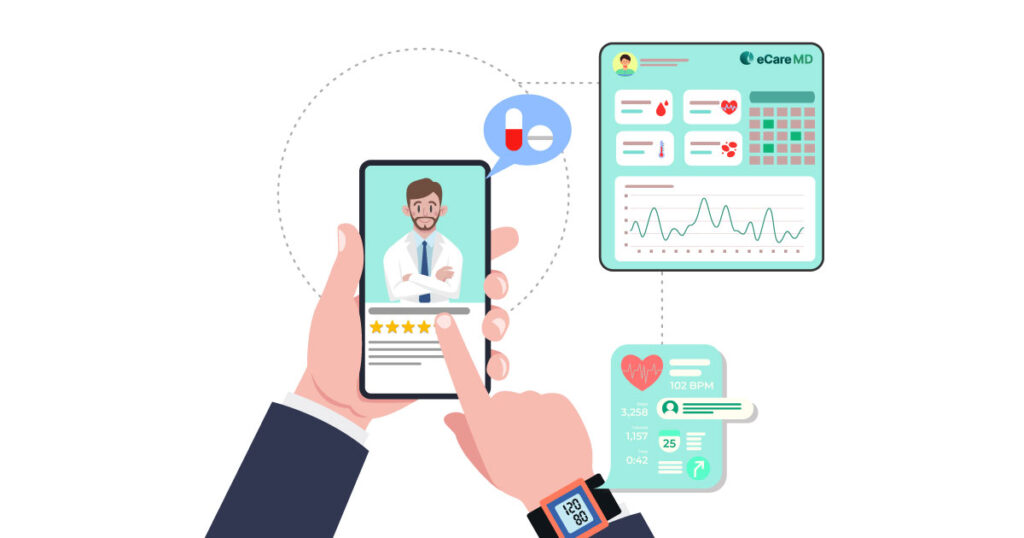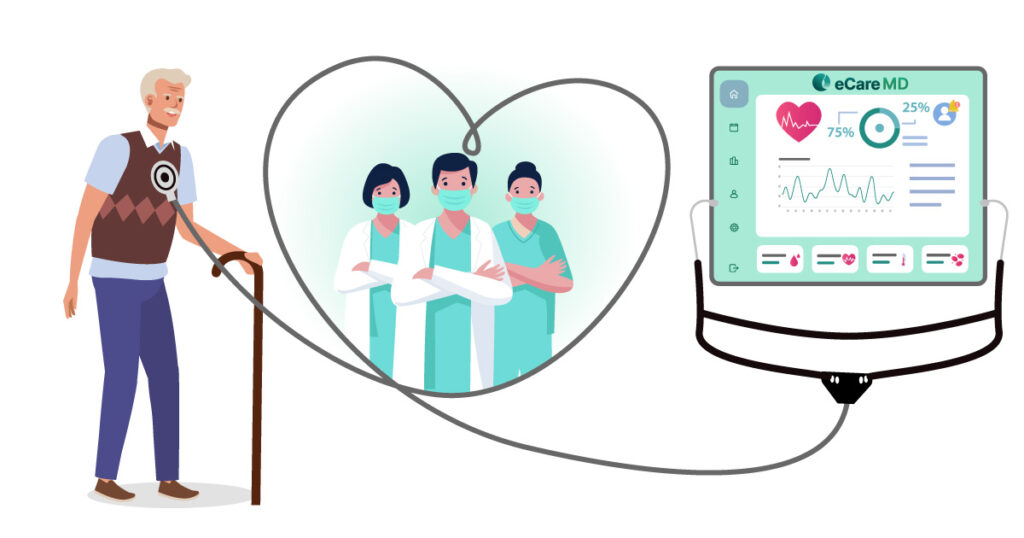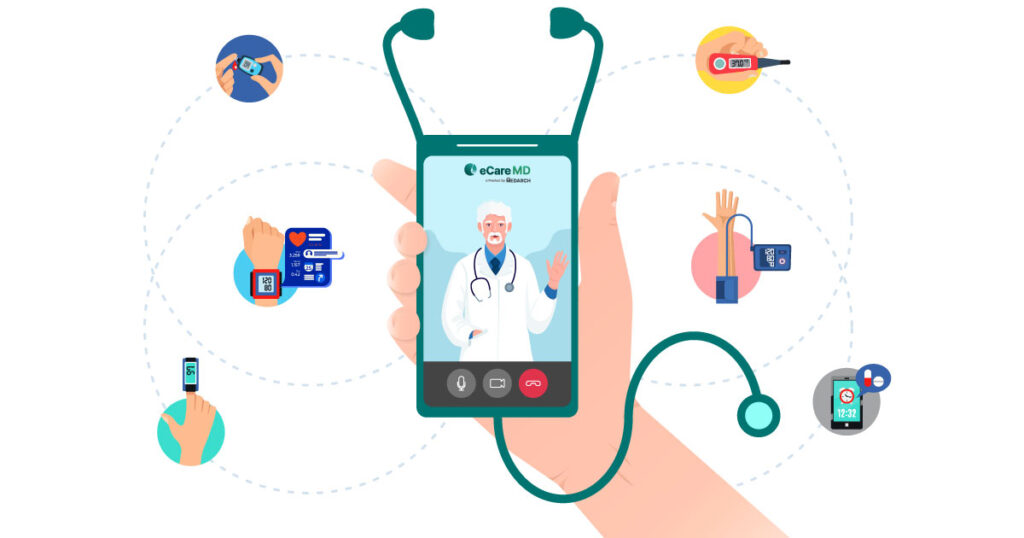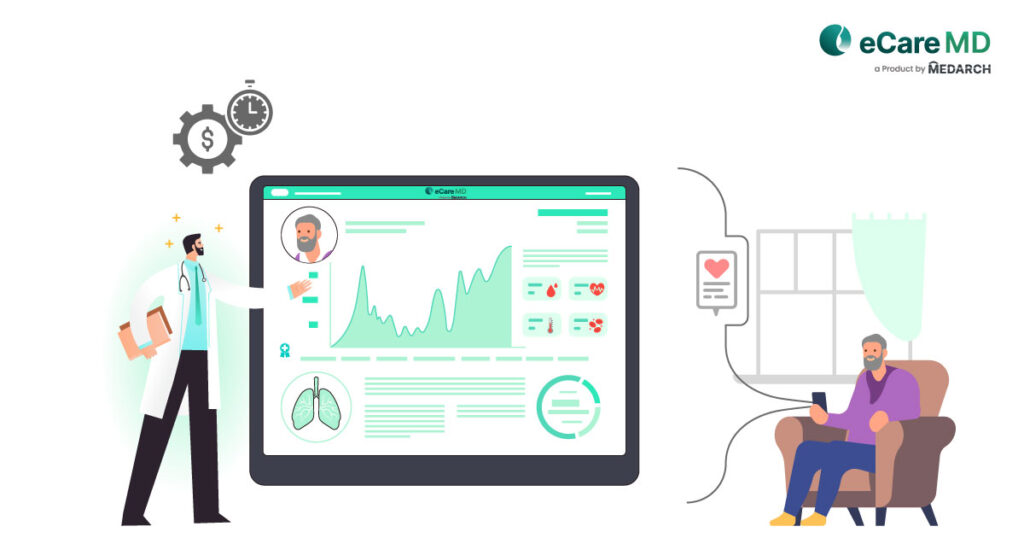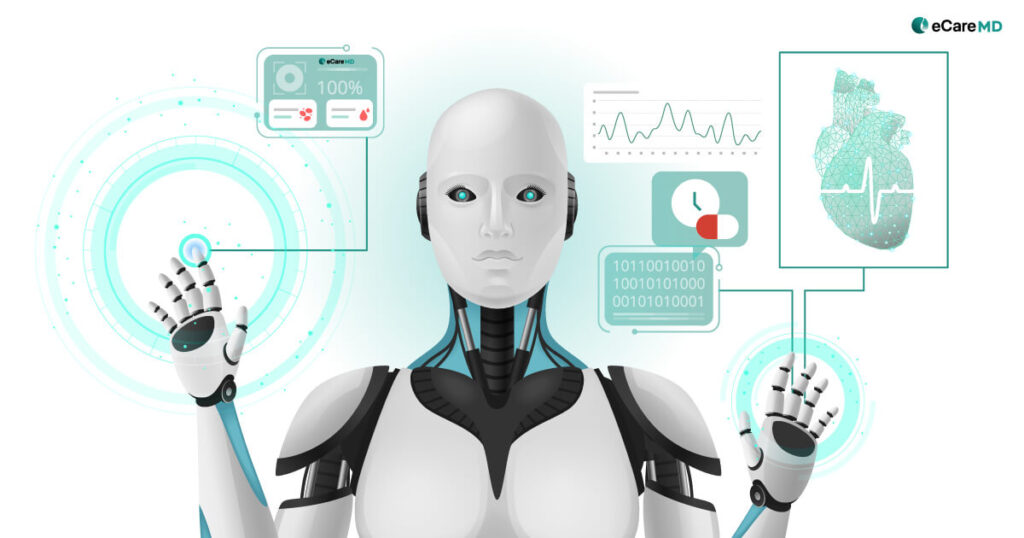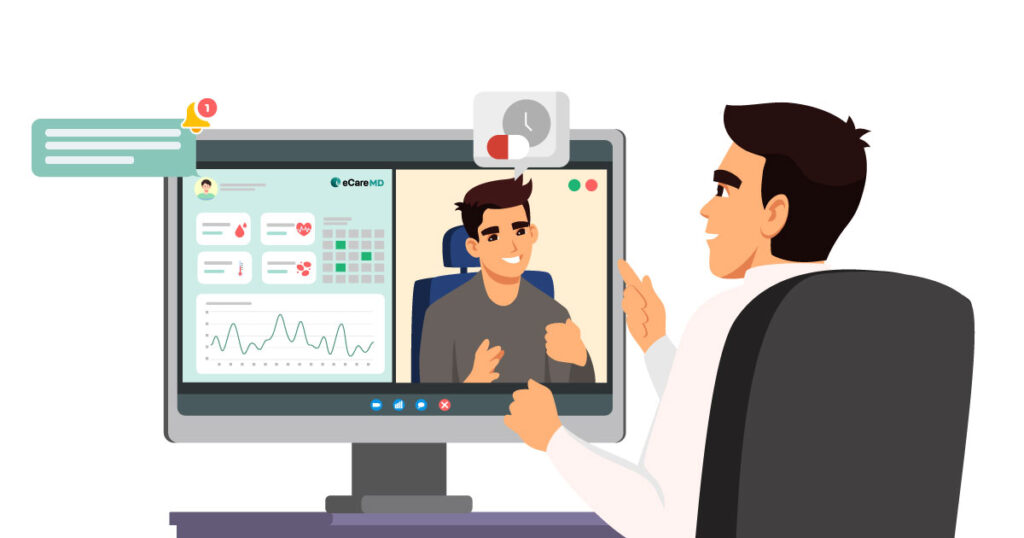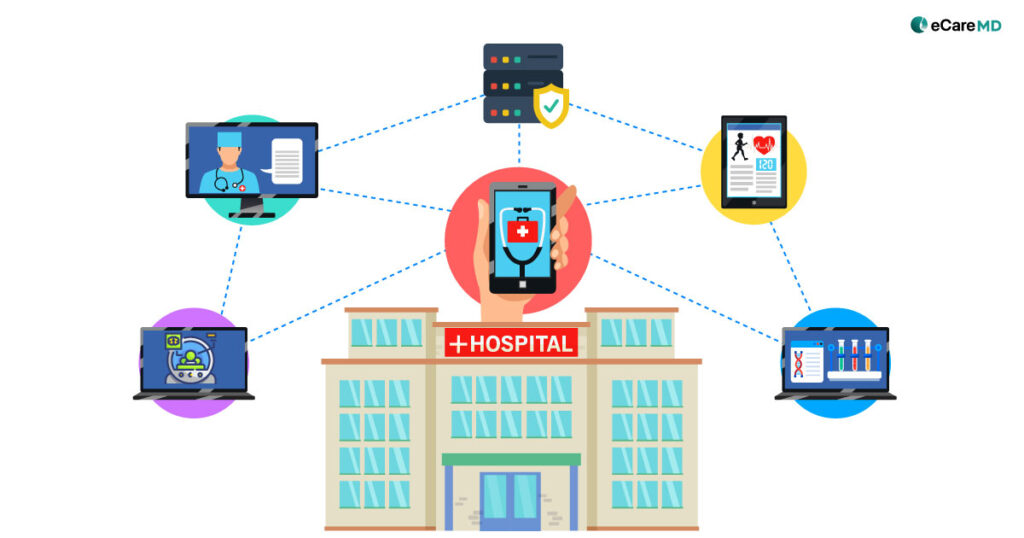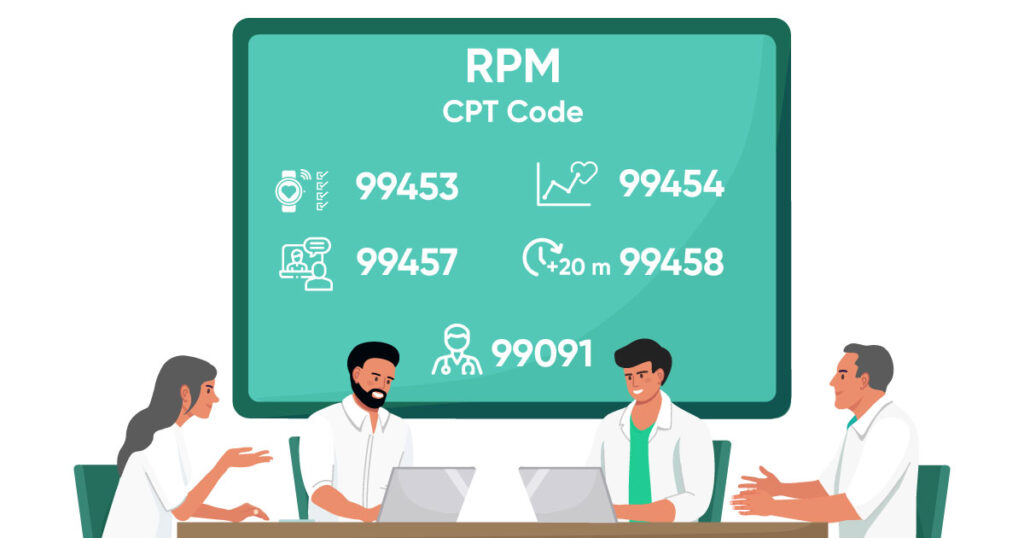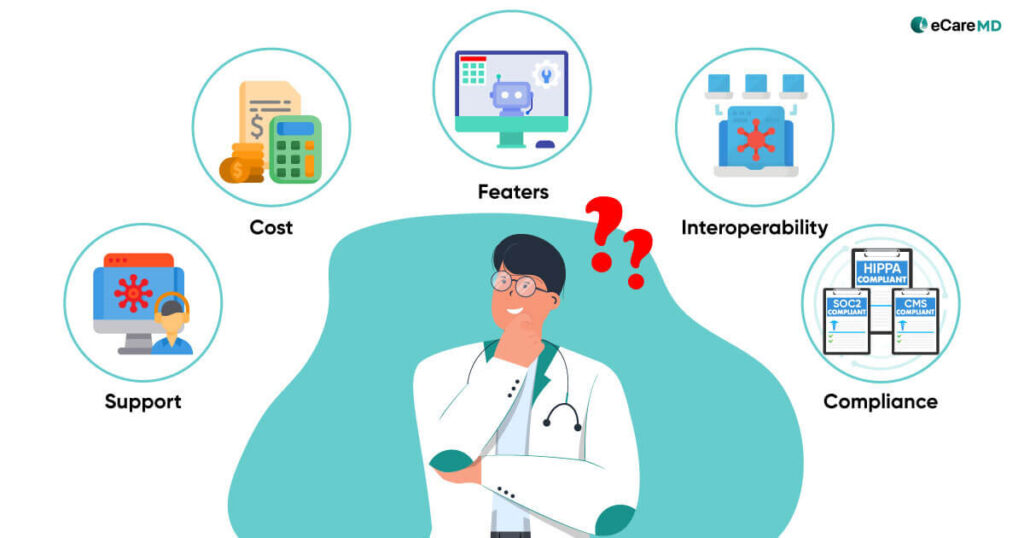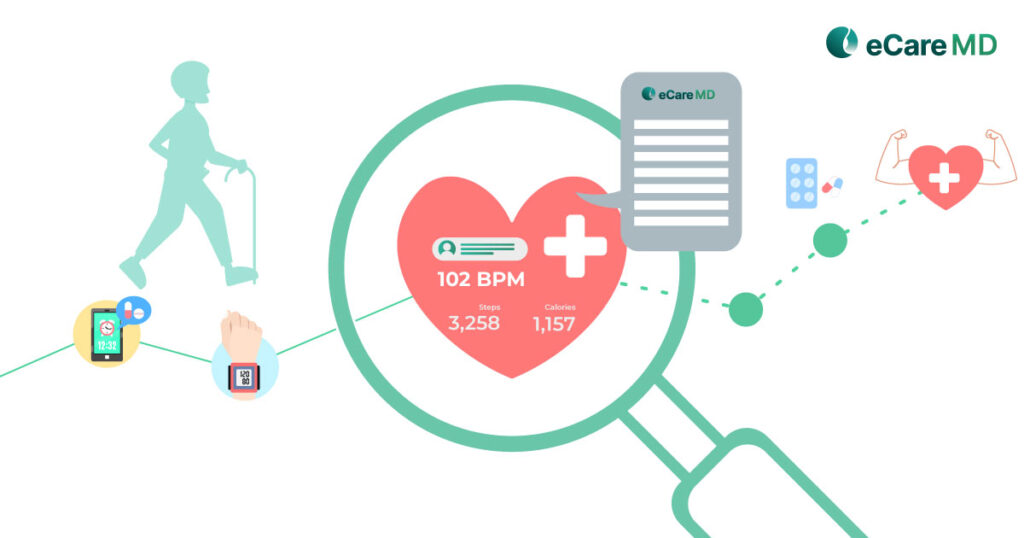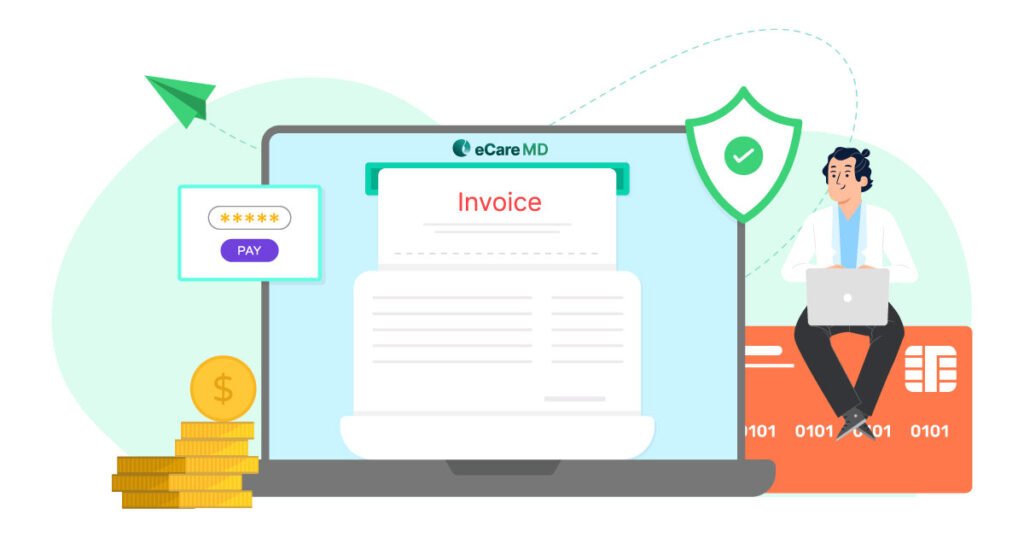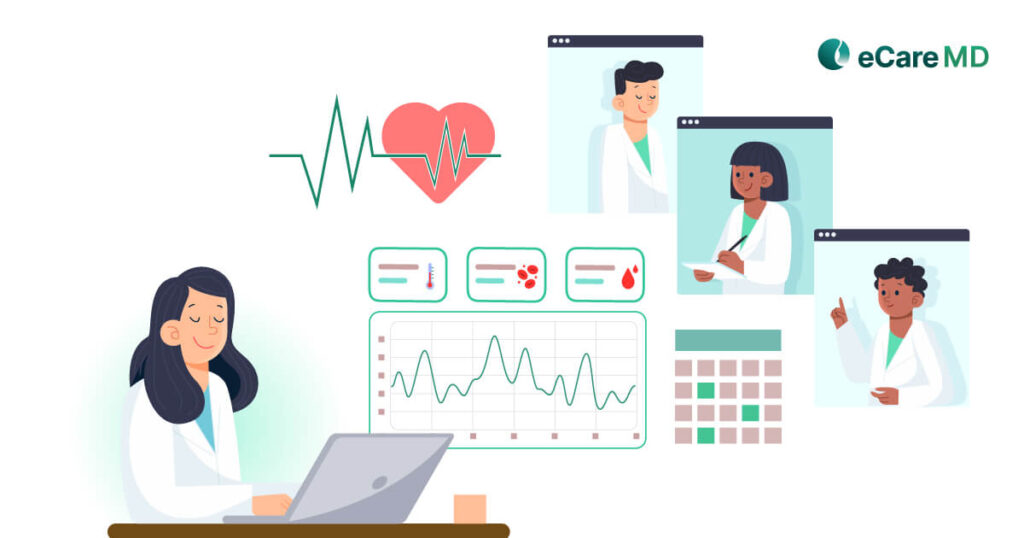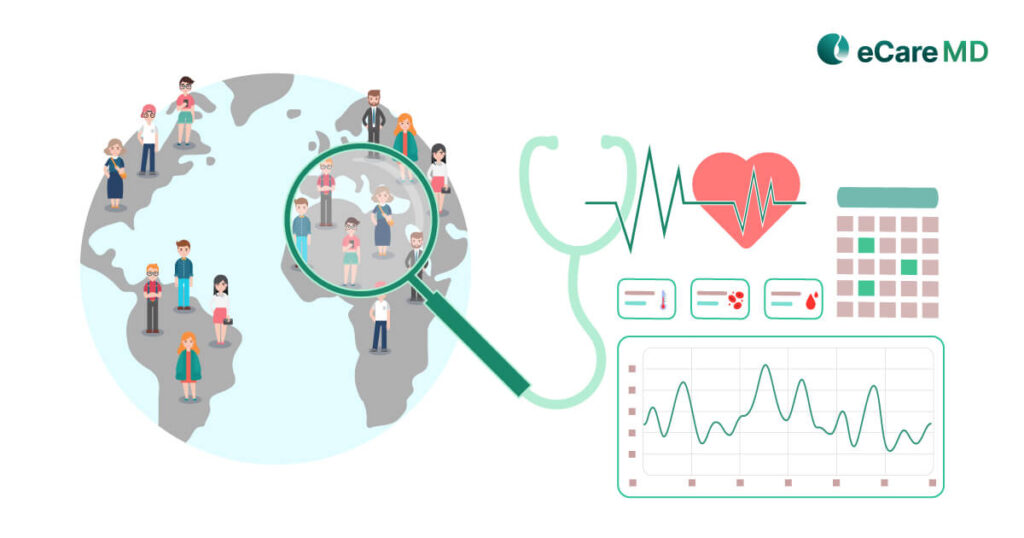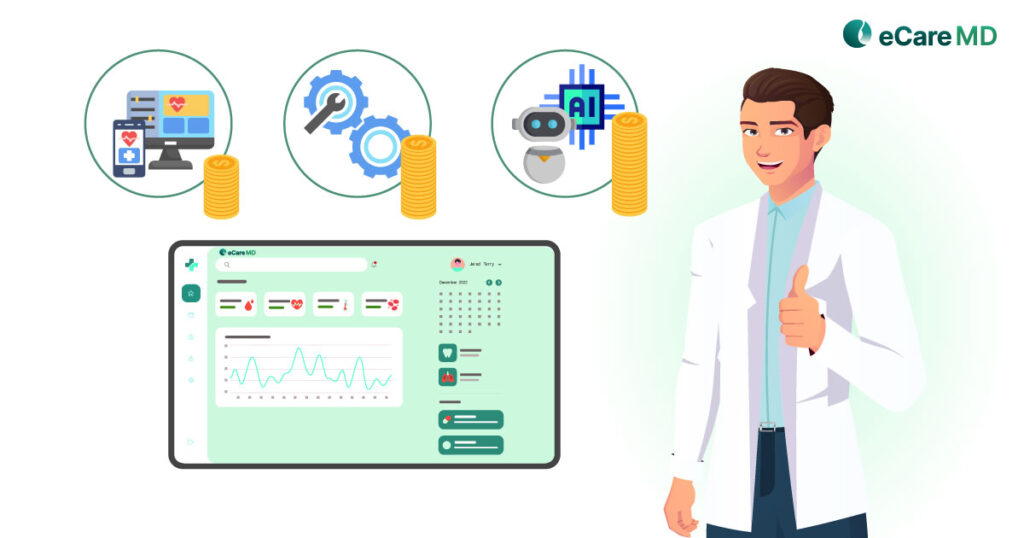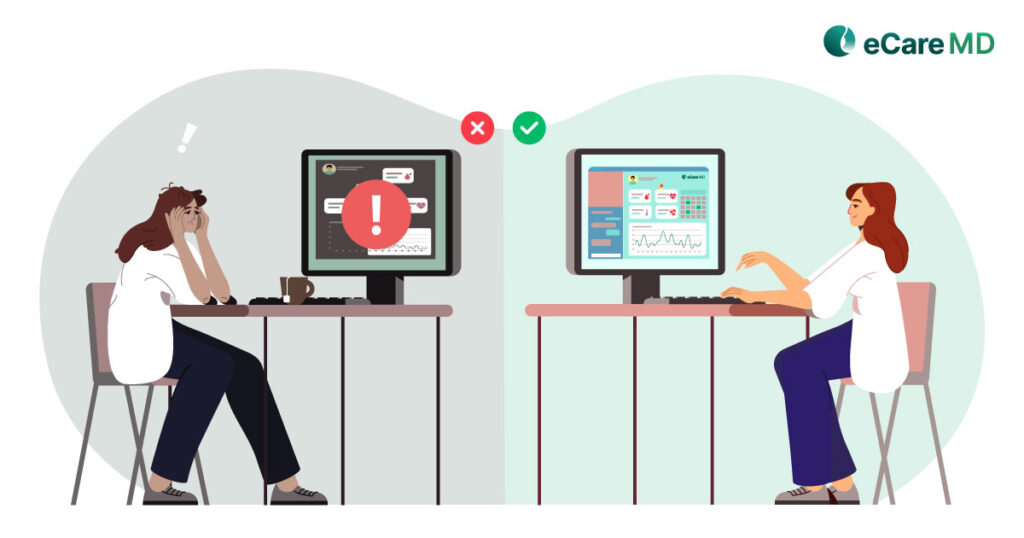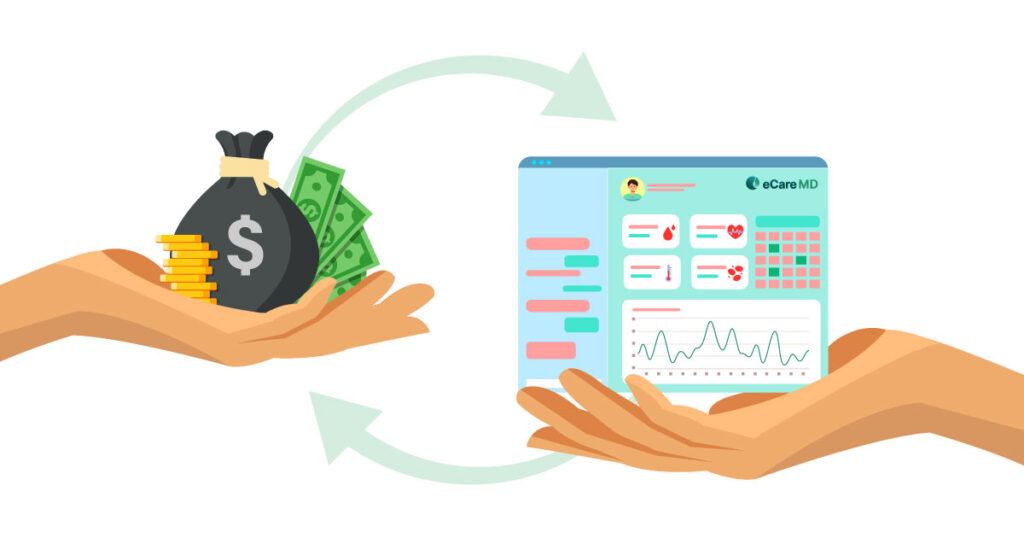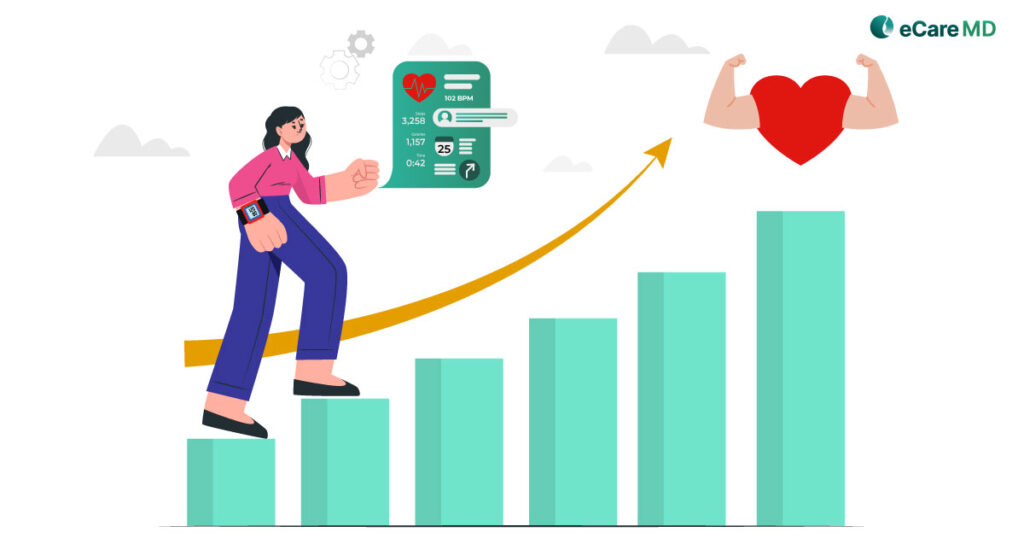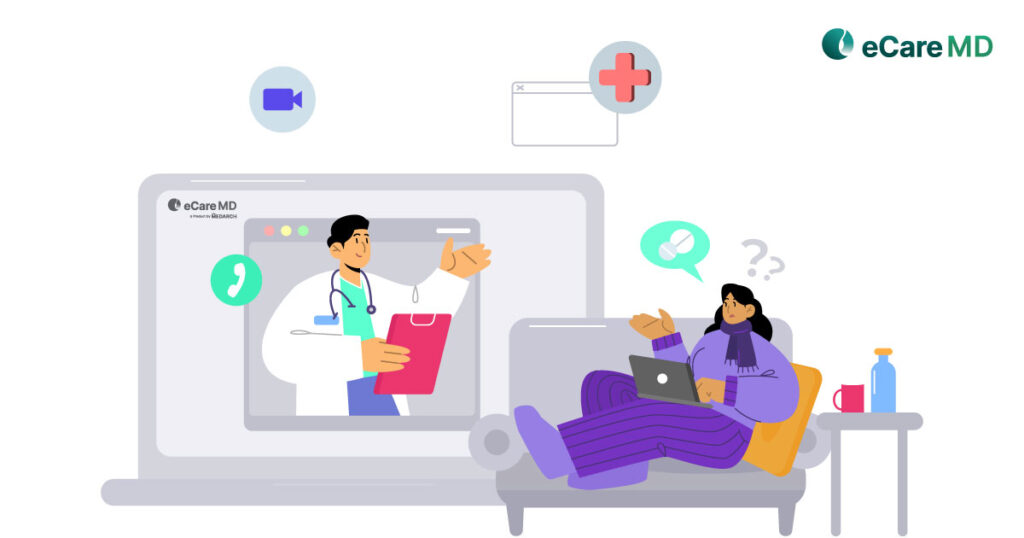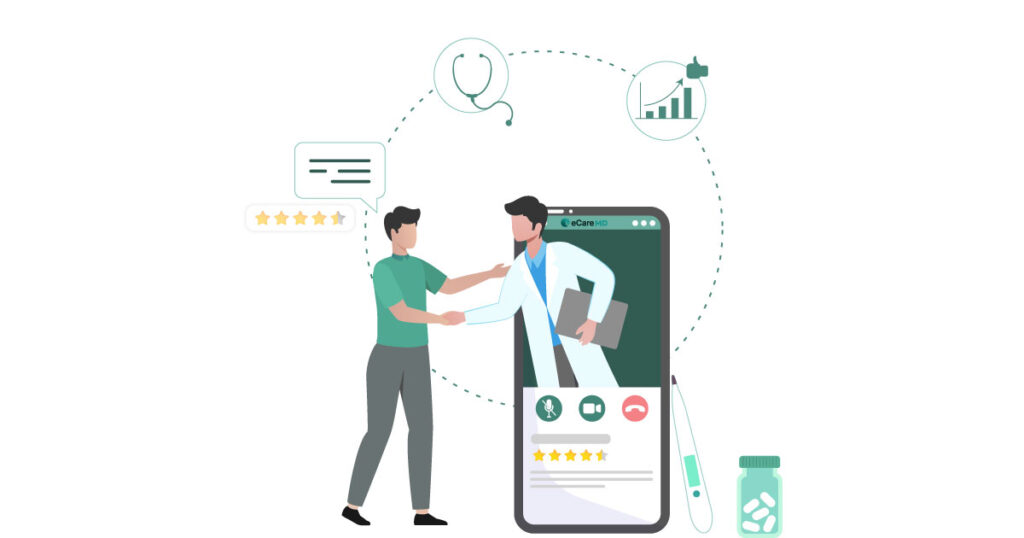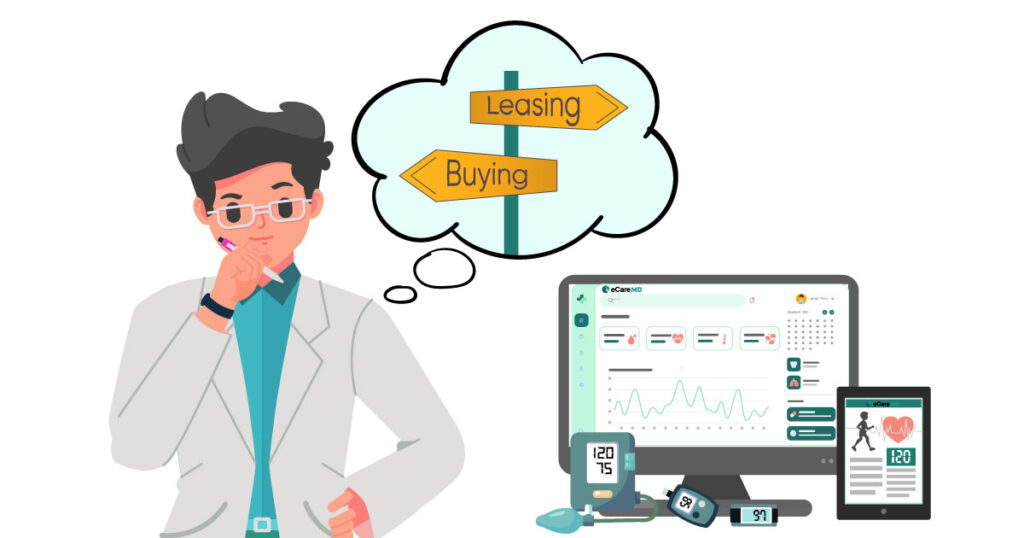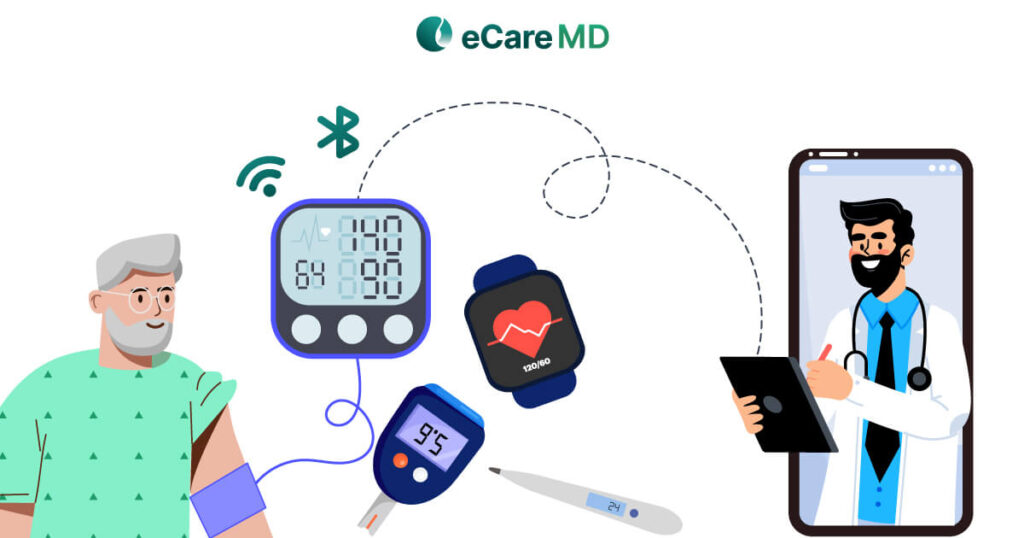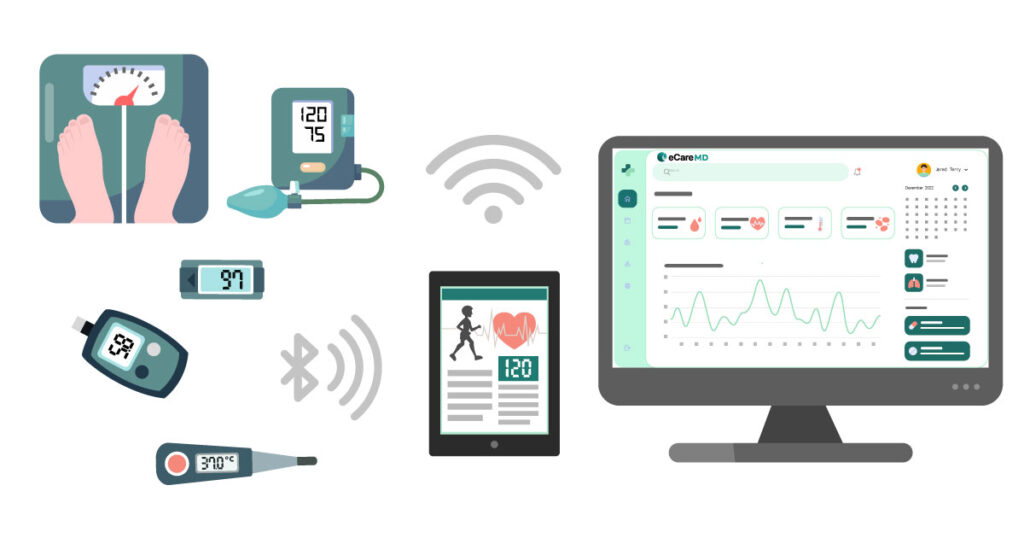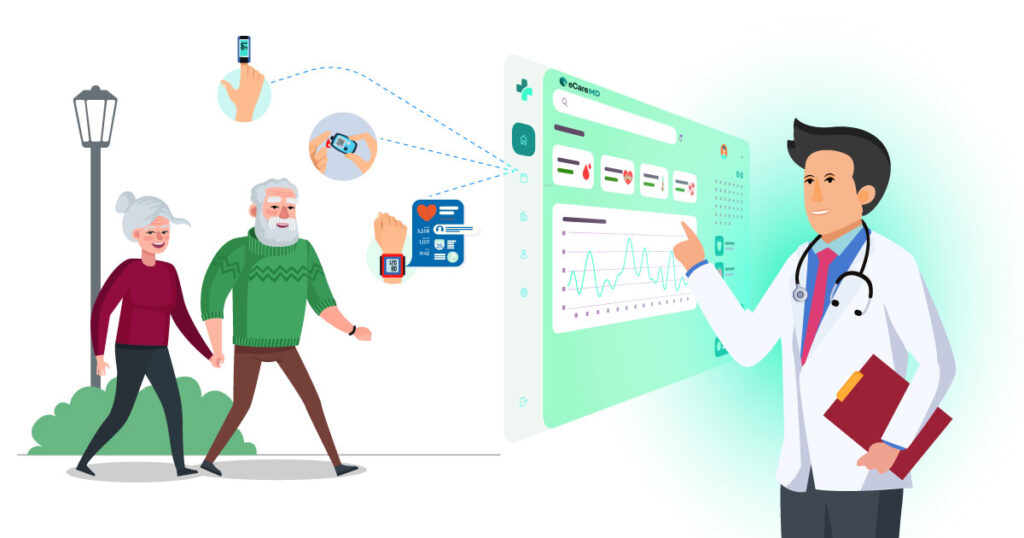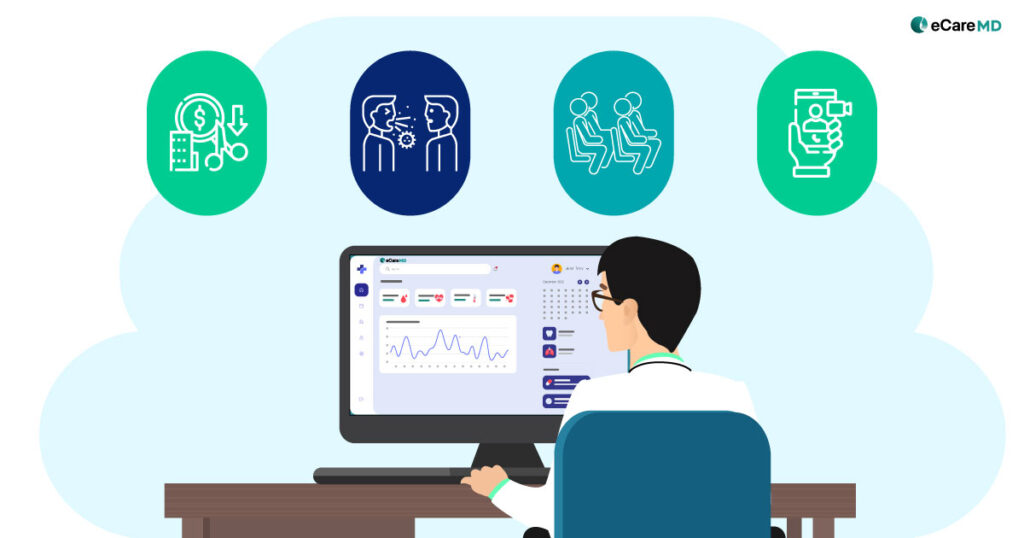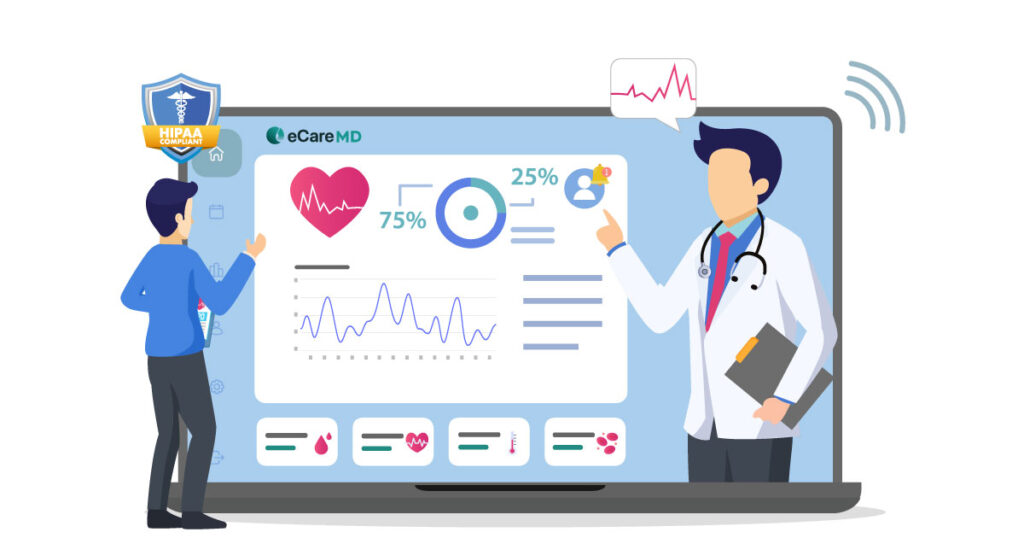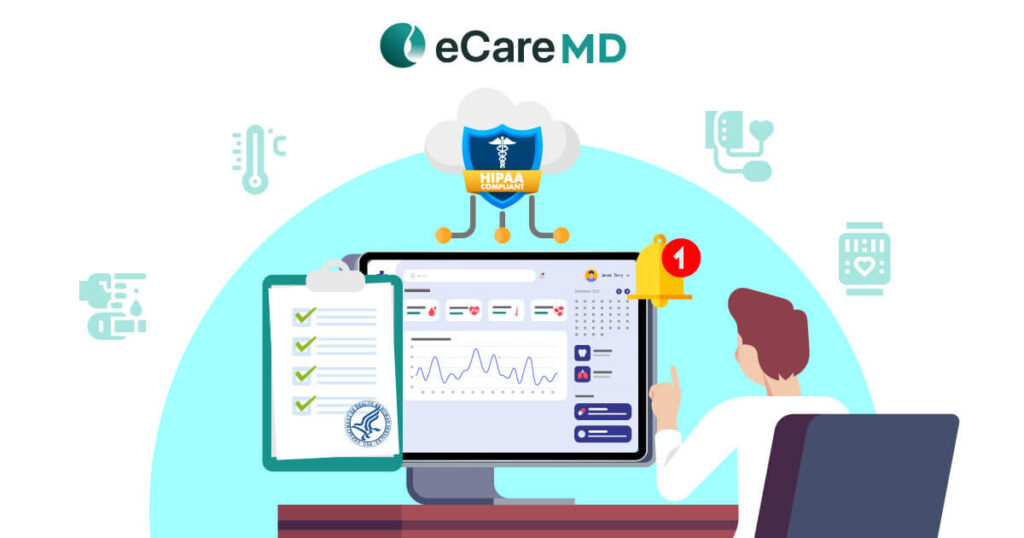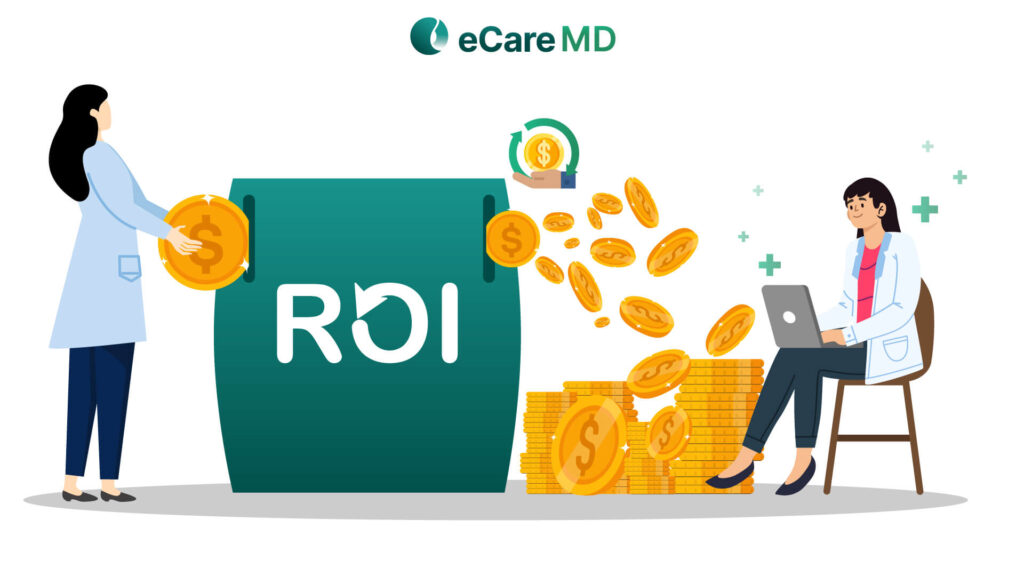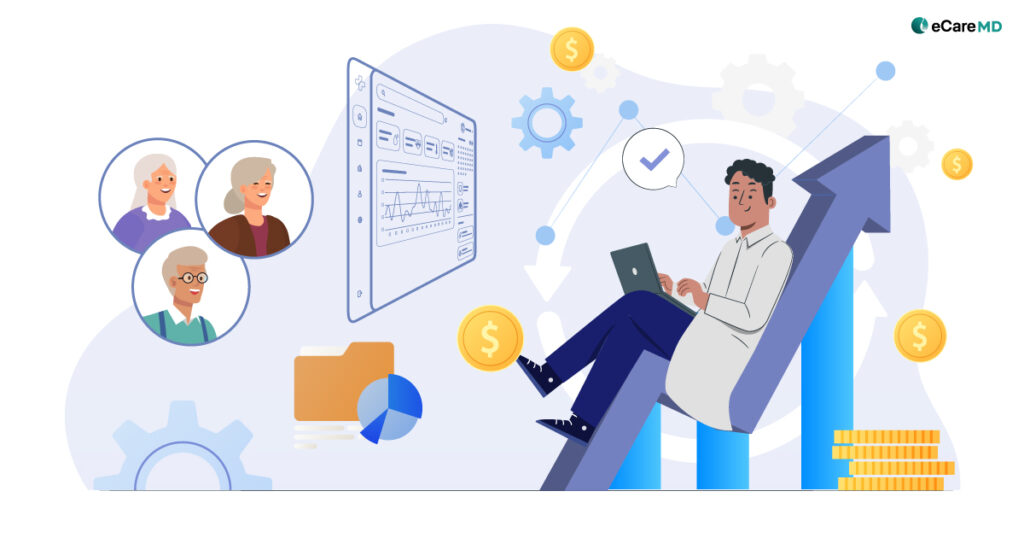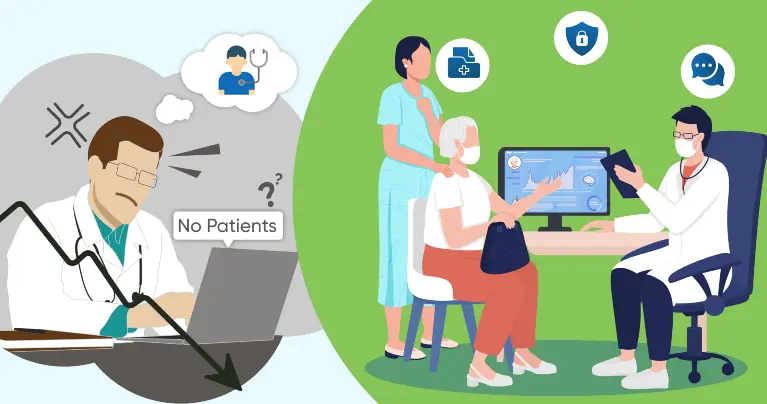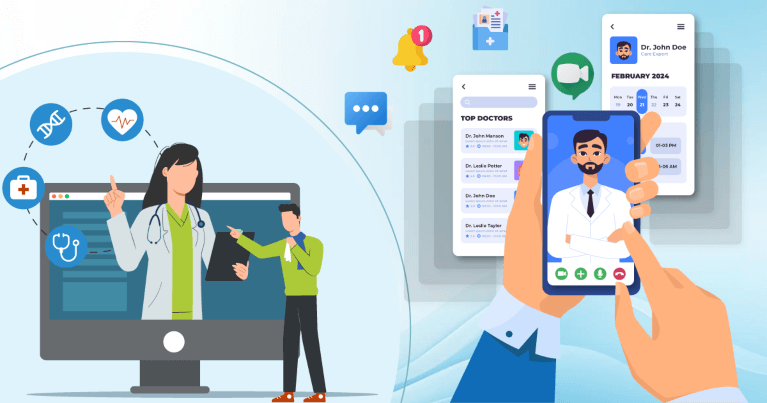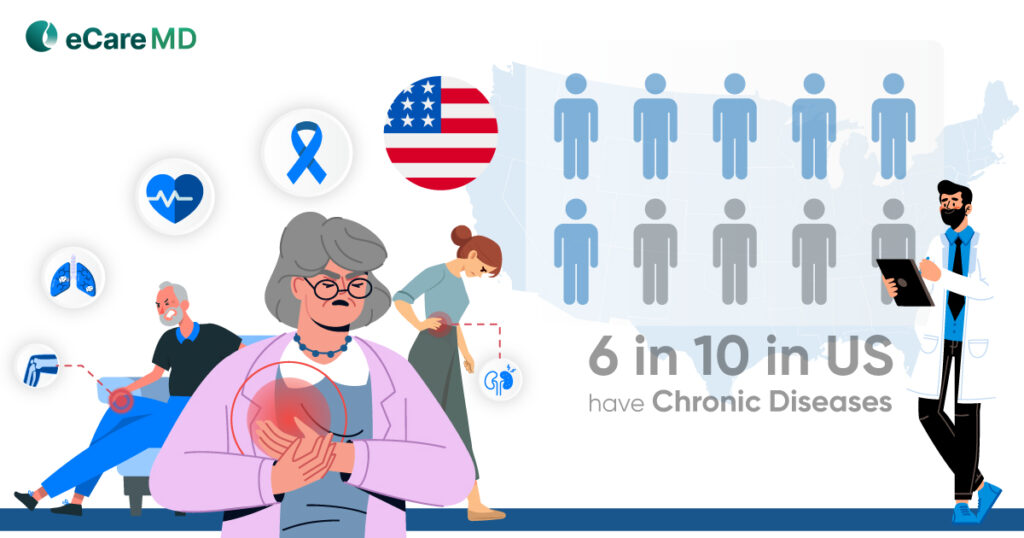Following that year, Intel released a whitepaper stating how these hospitals have streamlined emergency room visits and hospital readmissions with the use of data analytics.
Going a step further in the use of data analytics, the United States has revolutionized practices, with 96% of hospitals adopting EMR systems. But, with the rise in chronic conditions in the general population, the role of chronic care management software has become even more evident.
The integration of EMR in chronic care management software equips healthcare professionals with crucial patient data. Though it enabled data-driven decision making in CCM for individuals, it did not enable the healthcare practice to use its full potential.
Here, chronic care management software data analytics elevated the scope of practice.
Enabling Proactive Care - Benefits of Data Insights in CCM
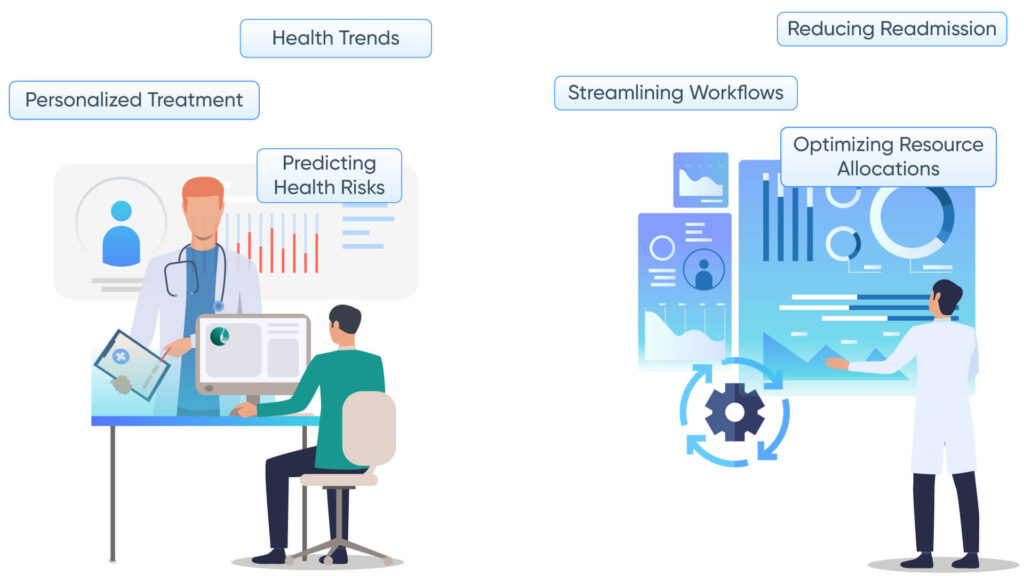
Data Insights Improving Patient Care
- Identifying Health Trends: Patient data insights in the chronic care management software will give providers a comprehensive overview of their health patterns. By identifying such trends, providers can provide relevant care to improve health outcomes.
- Predicting Health Risks: When real-time patient data is combined with the medical history of the patient, the feature of data analytics in CCM software can help healthcare providers accurately predict the risk patients might be exposed to.
- Personalized Treatment: Data analytics equips healthcare providers with crucial insights about patient health, which is utilized to curate personalized care plans for personalized treatment.
Data Analytics Improving Operational Efficiency
- Optimizing Resource Allocations: Chronically ill patients have the highest rate of hospital readmission and emergency visits. For such patients, providers can use data analytics to identify patterns and check for patients who are at high risk of readmission and be prepared with optimized recourses allocation.
- Reducing Readmission: Today, data analytics is used as an effective method to provide preventive care. This has resulted in proactive care of chronic patients, significantly reducing the readmission rate.
- Streamlining Workflows: The chronic care management software not only collects patient data but also generates practice data, providing crucial insights about clinical workflow. This can be used to simplify and streamline workflow, improving the overall efficiency of the practice.
Key Metrics and Insights
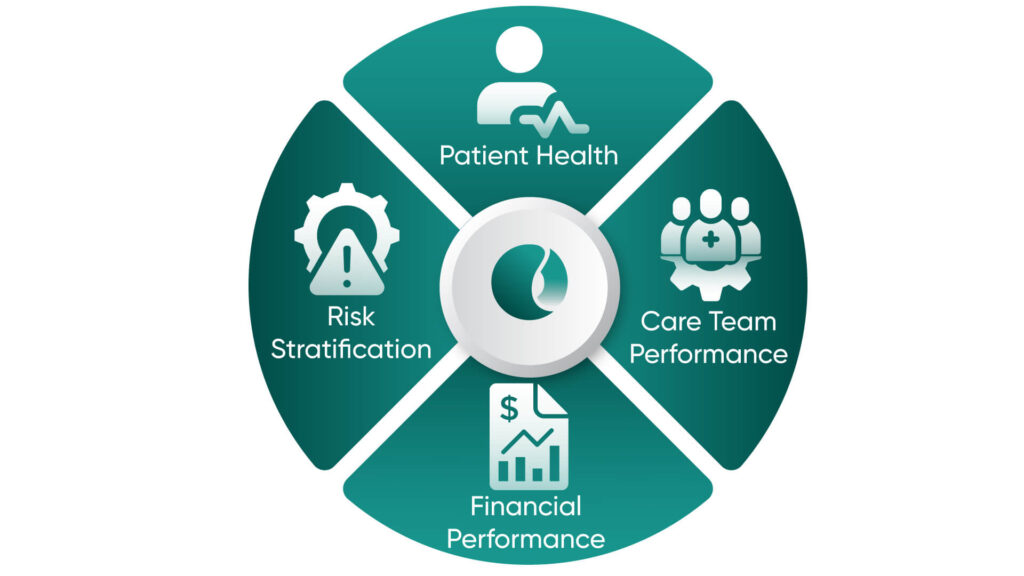
Integration of data analytics in CCM software can provide crucial metrics for chronic care management. On a base level, it covers all the essential aspects of practice, from patient health to the financial performance of the practice. Let’s explore what are the key metrics and insights chronic care management software data analytics provide:
1. Patient Health
2. Care Team Performance
3. Financial Performance
4. Risk Stratification
One of the core aspects of CCM is to continuously monitor patient health. Though with the help of chronic care management software, it has become fairly easier, managing health for a large patient population is quite a tiring process. In such cases, predictive analytics (a branch of data analytics) can be used to continuously monitor the progress of individual patients and patient population to identify high-risk patients. This enables providers to intervene and prevent any complications and hospitalizations proactively.
5 Key Metrics to Track in Your Chronic Care Software
Actionable Steps for Data-Driven Decisions
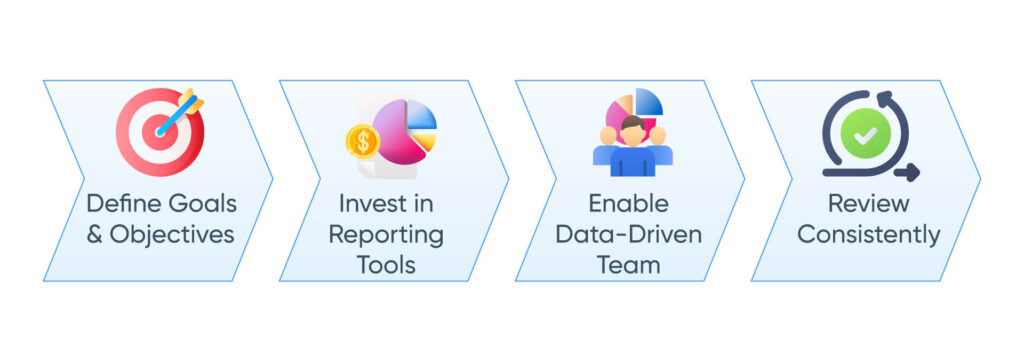
- Define Clear Goals and Objectives: With the use of chronic care management software, you can easily understand the areas where care providers need to use the feature of data analytics. For instance, data analytics can be perfectly integrated into care planning, which can allow providers to curate personalized care plans. Define clear goals and objectives when it comes to the feature of data analytics and harness the power of data to improve your healthcare delivery.
- Invest in User-Friendly Reporting Tools: When choosing a chronic care management software, keep in mind that the data pointers and insights are easily accessible to the providers. Along with that, invest in customizing the dashboard and reporting, as the easier it is to interpret the data, the faster the care delivery, directly impacting the efficiency of your practice.
- Empower your Team with Data Insights: The next step is to empower your care team with the data insights. Define the workflow in such a way that relevant data findings are shared across the care team to instill data-driven decision-making in CCM.
- Regularly Review and Iterate: Data-driven strategies for healthcare practices can improve the face of your healthcare practice. However, despite its benefits, you need to continuously monitor the progress and adjust the strategies to track the success of your initiative and how it is impacting your patient’s health.
Advanced Analytics and Emerging Trends
Advanced analytics features in chronic care management software can provide healthcare providers with deeper insights and predictive modeling, improving preventive care. Along with this, as the risk of possible mass health risks rises, it can be effectively used for population health management and make informed decisions for improving community care.
Conclusion
The proper implementation of data analytics in chronic care management software has the potential to change the nature of the healthcare industry from reactive to proactive. Further advancements in advanced technologies like machine learning and artificial intelligence can help you enhance preventive care and make more data-backed decisions.
However, to harness the power of data to improve patient care and the efficiency of your practice, you need to train the data analytics models with quality data. This can only be achieved by following all the standards and best practices in the industry.
Furthermore, as the healthcare industry continues to move towards a completely digital landscape, leveraging data is the only way forward to make the healthcare industry proactive in nature and improve the efficiency of your healthcare practice to drive better and faster patient health outcomes.
Watch Free Webinar on Maximizing CCM Software Analytics
Join Free WebinarFrequently Asked Question’s
Chronic care management software generally collects the following data:
- Patient Demographics and Administrative Data
- Clinical Data
- Communication and Engagement Data
Some best practices for maximizing the value of chronic care management software analytics are:
- Define clear goals and objectives
- Ensure data quality and accuracy
- Leverage diverse data sources
- Foster a data-driven culture
- Regularly monitor and evaluate results

